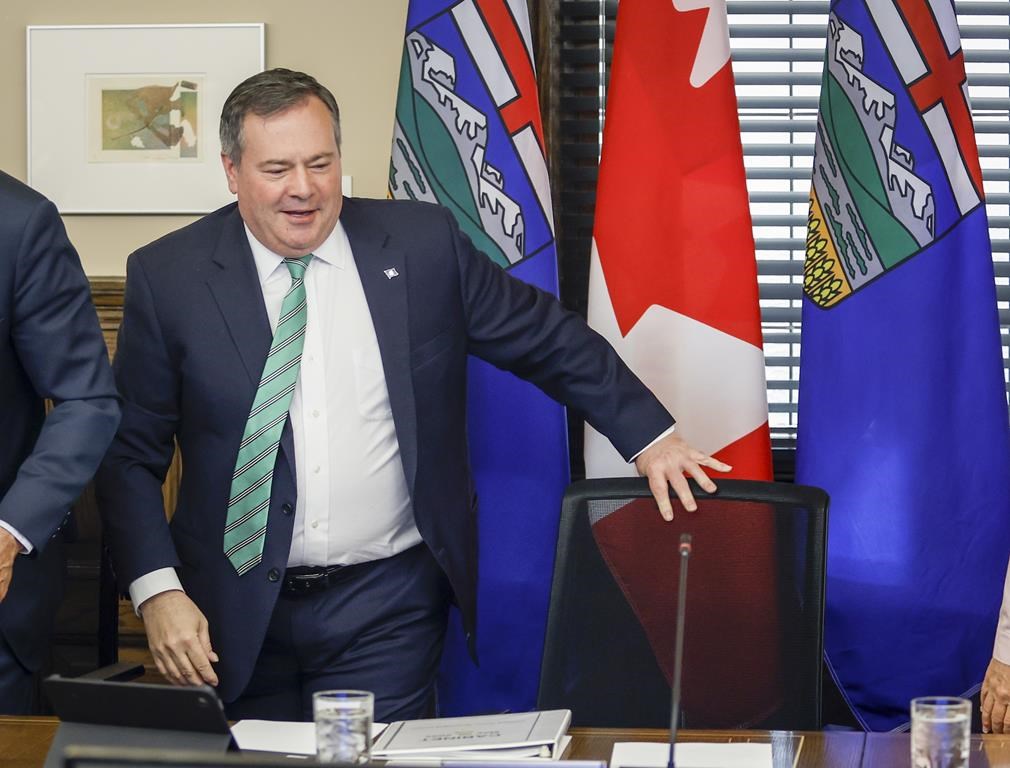The recent takedown of Alberta Premier Jason Kenney from his party leadership is the latest example of some political parties finding it difficult to maintain unity in their ranks.

Kenney barely exceeded 51 per cent in a party members’ leadership vote, effectively forcing him to step down. Under the party’s constitutional rules he could have stayed on, but in terms of real politics, Kenney knew he was done.
Essentially, Kenney was voted out because even though he is a right-wing politician he is evidently not right-wing enough for the United Conservative Party and he accepted too willingly various public health restrictions during the pandemic.
The party will now go through with what will certainly be a divisive and likely bitter race to replace him. Candidates, after witnessing the fate of Kenney, will surely shift the party even further to the right.
But the Alberta situation is not unique.

The federal Conservatives are tearing themselves apart in their own leadership race, and the candidate seen as the most likely winner is aggressively pushing right-wing policies. It is entirely unclear whether the party can hold itself together under Pierre Poilievre’s leadership, or whether it will split into different camps.

Get daily National news
All political parties are essentially coalitions of some sort and it appears, in some instances at least, it is getting more difficult to hold these coalitions together.
For example, it seems that social Conservatives and so-called progressive Conservatives can no longer get along in Alberta and that may very well end up being the case regarding the federal Conservative Party.
South of the border, we are witnessing the two main political parties going through earthquakes of their own making.

The Republican Party appears to be in the midst of a civil war, pitting party members who are Donald Trump supporters versus those that are decidedly not. It is not entirely clear whether it can ensure long-term survival.
The Democrats are not nearly as consumed by internal warfare, but elements of it are emerging. If the party does not do well during the coming mid-term elections, there may very well be an internal revolt against the Joe Biden administration (likely led by left-wing elements in the party).
While there is more evidence right now that right-wing parties are having the most problems when it comes to maintaining unity, left-wing parties are not immune from suffering the same fate.
The emergence of such things as defunding police, woke culture and an aggressive environmental protest movement can hive off support for progressive parties.

So far, the BC NDP government does not seem to have lost much support to these groups, but the longer it is in power the harder it may find it to fend off these factions.
As for the BC Liberals, if they continue to be essentially shut out of urban and suburban areas when it comes to electing MLAs, it will be almost impossible to hold that so-called “free enterprise” coalition together.
Political discourse has become coarser during this pandemic (check out Twitter on any given day) and traditional political alliances have weakened as tempers have frayed and anger and frustration among many are on the rise.
The potential implications of this deteriorating situation could be dire for political parties and their leaders. Anyone doubting that should talk to Jason Kenney.
Keith Baldrey is the chief political reporter for Global BC








Comments
Want to discuss? Please read our Commenting Policy first.